- Home
- Succulents
- Pleiospilos
- Pleiospilos nelii
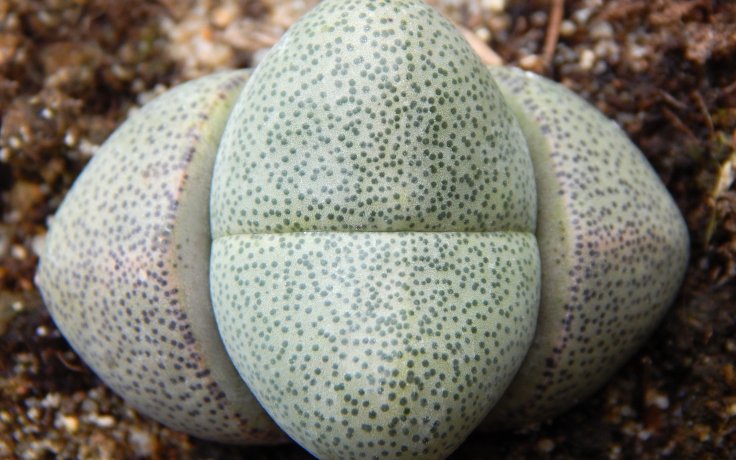
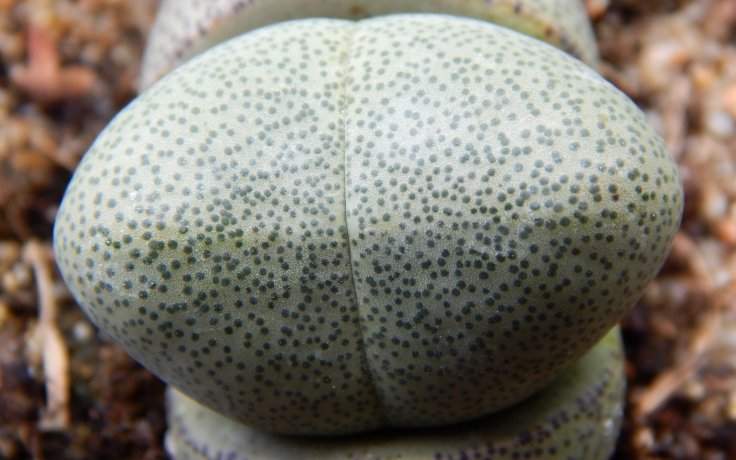
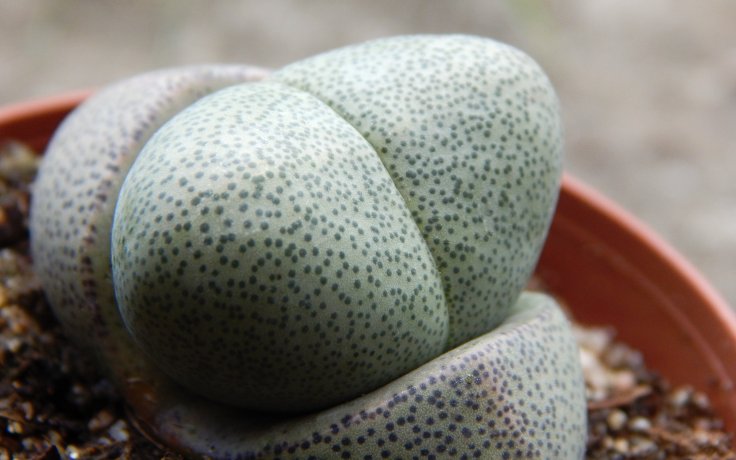
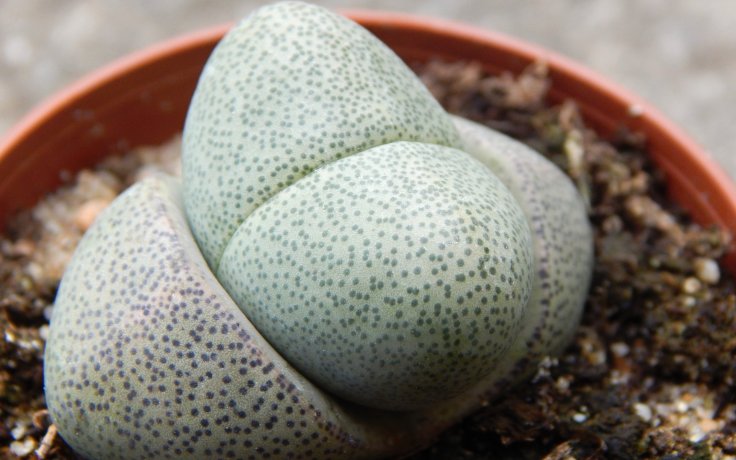
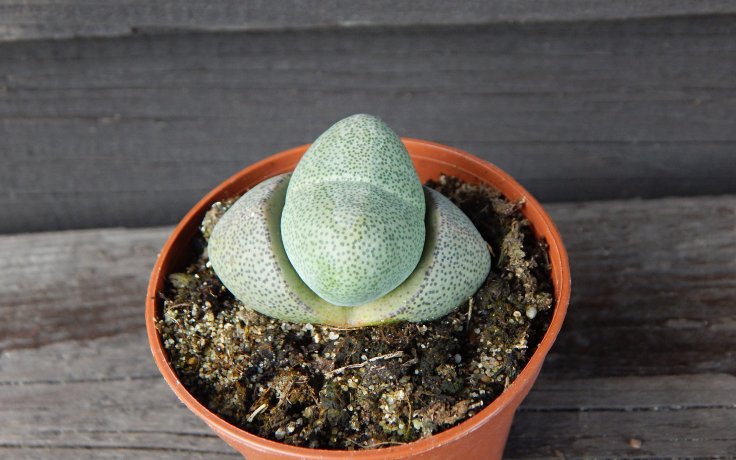
Pleiospilos nelii
The plant prefers a sunny habitat.
Always water a few days after the substrate has dried out. In winter, limit watering. In general, water rather limitedly.
It can tolerate -3.9 °C in the short term. However, the plant is not hardy.
The succulent has many folk names. Some of these include Mimicry Plant, due to its resemblance to a stone.
Pleiospilos nelii, also known by the synonyms Pleiospilos pedunculatus and Pleiospilos tricolor and by the folk names Cleft Stone, Mimicry Plant and Split Rock, is a fascinating succulent plant native to South Africa. It occurs in semi-arid areas on the border between the Western and Eastern Cape provinces. The epithet 'nelii' pays tribute to Gert Cornelia Nel (1885-1950), a South African botanist, plant collector and professor of botany at the University of Stellenbosch.
Pleiospilos is a dwarf succulent plant with one or more pairs of opposite leaves. The leaves turn grey-green to brownish with tiny dark dots that actually represent stomata (pores in the skin). Each year a new pair of leaves develops, emerging from a crack between two older leaves. The plant bodies can grow up to 8 cm in height and 10 cm in diameter.
The succulent boasts attractive flowers. These daisy-like flowers have numerous narrow petals in colours ranging from yellow-orange to salmon with a white ground. They emerge from a crevice between the leaves, usually from early spring to mid-summer, occasionally in autumn. Flowers open in the afternoon and close at sunset.
The key to growing them is proper watering. During dormancy, usually in summer, the plant requires little or no water. As it begins to grow, water regularly, but allow the substrate to dry out between waterings. The succulent does not need to be fertilised. Pleiospilos nelii is an ideal choice for fans of bizarre shapes and plants with atypical growth. The geometry of the plant's body pleases not only technicians but also enthusiasts for simplicity and clarity.